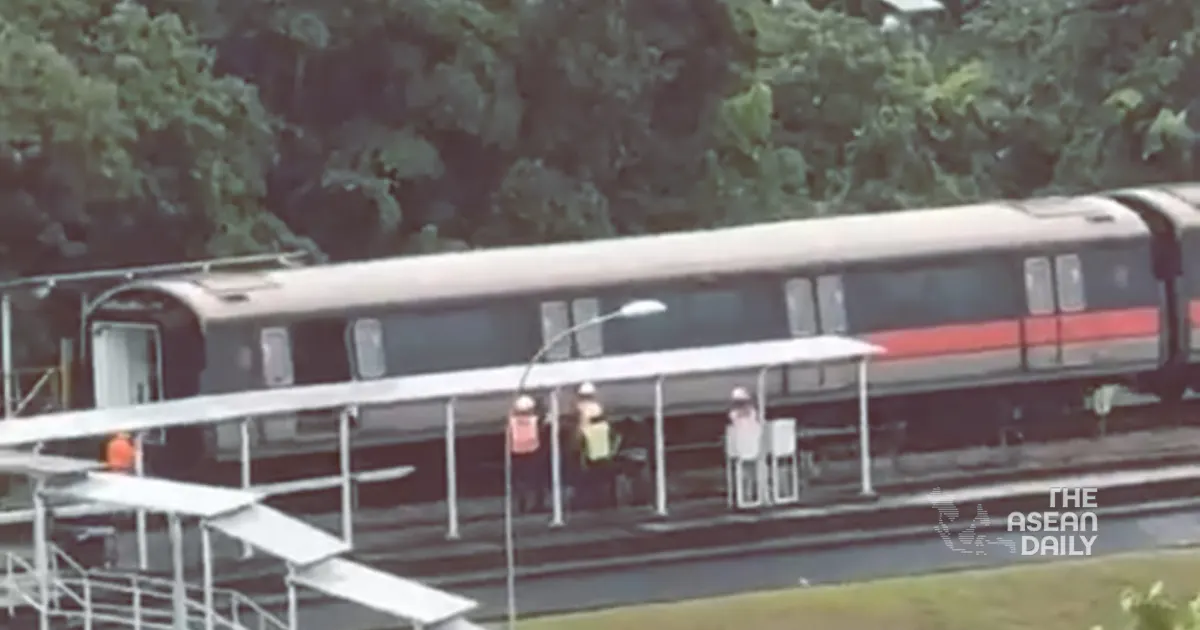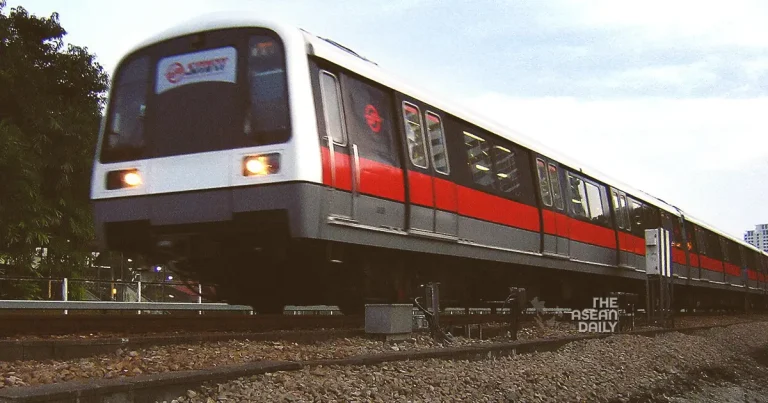15-10-2024 (SINGAPORE) In a comprehensive ministerial statement delivered to Parliament on Tuesday, Singapore’s Transport Minister Chee Hong Tat addressed pressing concerns regarding the recent East-West Line MRT disruptions and the broader issues of train reliability and maintenance in the city-state’s public transport system.
The statement came in response to a series of parliamentary questions following last month’s significant disruption that affected approximately three million passenger journeys over six days. The incident, which occurred between Boon Lay and Queenstown stations, was caused by the failure of an axle box on a first-generation Kawasaki Heavy Industries (KHI) train that had been in service for more than 35 years.
Minister Chee emphasised that the total service life of 38 years for these trains, as determined by an independent assessor in 2012, remains a valid benchmark. He stated, “First-generation KHI trains that maintain reliability can continue to be utilised if they have not exceeded the total service life of 38 years.” The minister stressed that a train’s reliability is not solely dependent on its age but is influenced by various factors.

Addressing the ongoing replacement of older rolling stock, Chee revealed that the Land Transport Authority (LTA) has purchased 106 new R151 trains to replace the first-generation trains on the North-South and East-West Lines. The minister reported that 34 of these new trains have already been handed over to rail operator SMRT, with a plan to replace all KHI trains by the end of 2026, before they reach their 38-year service mark.
The recent disruption has prompted a thorough investigation into the root cause of the axle box failure, as well as a review of fault detection and incident handling procedures. The LTA, supported by an Expert Advisory Panel, will lead this investigation, while the Ministry of Transport’s Transport Safety Investigation Bureau will conduct an independent safety inquiry. Minister Chee assured that the findings would be made public upon completion of the investigations, expected in the coming months.
In response to queries about linking fare reviews to service levels and disruptions, the minister maintained the government’s stance against such a connection. He explained that the Public Transport Council (PTC) had previously decided against this approach, citing existing measures to ensure service standards are met, including penalties for disruptions and withheld payments when operators fail to meet reliability targets.
Chee emphasised the delicate balance between maintaining affordable fares and covering rising operating costs. He warned that persistent shortfalls in fare adjustments could lead to chronic impacts on service quality and reliability over time, or necessitate increased government subsidies funded by taxpayers.
On a positive note, the minister reported that all MRT lines are predicted to have achieved the Mean Kilometres Between Failure (MKBF) target of one million train-km by the end of September 2024. This reliability benchmark measures the mean distance travelled without service delays lasting more than five minutes.
Reflecting on the recent disruption, Chee highlighted the resilience of Singapore’s public transport network, which includes six MRT lines and a substantial bus fleet. While acknowledging that buses cannot fully replace rail capacity during disruptions, he noted their role in providing some resilience alongside alternative routes using other MRT lines and regular bus services.
The minister concluded his statement by reaffirming the government’s commitment to improving the safety, reliability, and resilience of the public transport system. “This incident was a setback,” Chee admitted, “but it will not shake our determination to do better and make our MRT a safe, reliable, and resilient rail system that Singaporeans can be proud of.”




